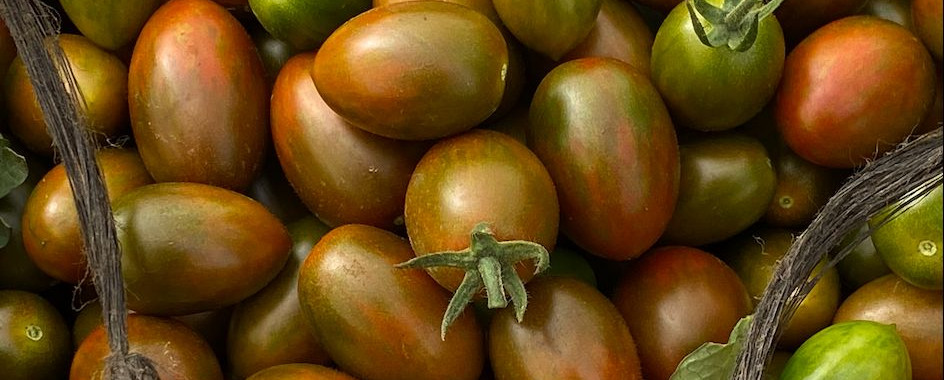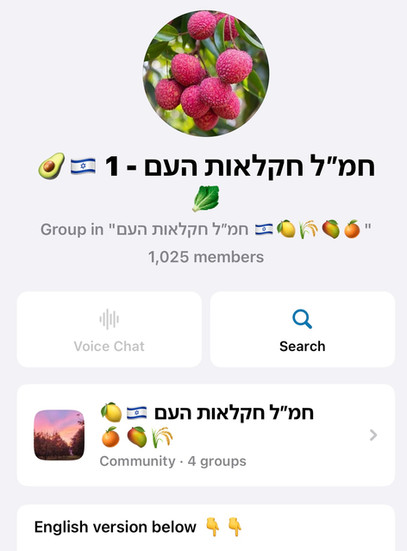
Volunteers fill the void in the farming community, following October. 7. (Photo: Dr .Guy Halfteck)
When the war broke out, Israelis began to volunteer for the war effort, with agriculture viewed as a top priority. This need inspired a high-tech CEO to organize groups of volunteers to assist local farmers.
In the aftermath of October 7, Israeli farmers were abandoned by most foreign workers who fled the country. The farming community rapidly spiraled into a state of emergency, leaving farmers at risk of losing their crops and livelihood, and leaving Israel without local produce.

Dr. Guy Halfteck (Photo: Courtesy)
CEO of KnackApp, Dr. Guy Halfteck, is one of many critical wartime volunteers to build and lead a thriving community to help Israel during a painful and catastrophic war.
Dr. Halfteck travels between Israel, London and New York, but he was in Israel on October 7. He decided to stay because he was concerned about the sudden agricultural crisis.
"I realized within the first week that farmers are going to need a lot of help, and I contacted one of the farms in the south and told them that I'd like to come and help. I went down to help them and I stayed with them and then I stayed on another farm, and then on a third farm — eventually I stayed on four different farms," Dr. Halfteck explained.
Picking strawberries, cherry tomatoes and working with other crops included some of his volunteer work at the farms in the Gaza envelope. Having an affinity for farming, and some experience at this parents' home in the north, it was natural for Dr. Halfteck to consider the plight of the farmers. And just like many other Israelis, it was hard to focus on anything other than find a way to volunteer for the war effort.
"I always had an interest in farming and agriculture, just as a pastime, as a kind of interest of mine. I like farming. I have friends who are farmers. I just wanted to go down and help those farmers, and I figured I could help with farming because I like it and I know it, and I'll just go ahead and do it, as physical and as difficult as it is. I'd rather stay away from my computer. I felt like I was not able to do any of my entrepreneurship, technology, which is also creative work. I felt like all of my creative side was basically shut down and I felt like I needed to devote myself to something that is going to help other people," said Dr. Halfteck.
As the war progressed, locals began looking to volunteer in agriculture. Supporters around the world also began flying to Israel, specifically to volunteer for the war effort. Many were looking to make agricultural work a big part of their contribution, with some seeking organized transportation to and from the farms.
Volunteer farming through Dr. Halfteck's WhatsApp community. (Photos: Dr. Guy Halfteck)
"The Nation's Agriculture War Room,” (חמ״ל חקלאות העם) is a WhatsApp community that was created by Dr. Halfteck to enlist volunteers.
"Suddenly they [the farmers] have an influx of volunteers, have to manage and monitor them, train them even a bit, even a basic kind of explanation and training. I took it upon myself to help those farmers to kind manage the volunteers. And then I realized that many farmers actually do not get the help they need, they might need a lot of help, but they do not get enough volunteers for a bunch of reasons. I started the WhatsApp group to enlist volunteers," Dr. Halfteck explained.
The first WhatsApp group was created in November. It rapidly developed into a large community with four groups, now tied to one main community. There are over 2,000 members, with a mix of locals and foreigners. With messages in English and Hebrew it’s easy to navigate through the WhatsApp community, and sign up for volunteer work. The group geared to English speakers is called, "Come Help Israeli Farmers." The fourth group is strictly for matching farmers with Israelis seeking employment in agriculture.
Screenshots of the three volunteer WhatsApp groups under the main umbrella group. You can signup here for the English group.
Free Transportation
Free transportation is offered to and from the farms, from various pickup locations across the country, such as Haifa, Netanya, Raanana, and Tel Aviv, with other pickup points along the way as required. The cost of the transportation is covered by the government, so volunteers don't have to pay to join the groups.
With a bus heading to a farm every day, except Saturday, about 200-250 volunteers per week join the organized groups, not including all the volunteers that arrive independently. Both foreigners and locals have joined the effort.
***April Update:
As of the end of March, Dr. Halfteck stopped organizing group transportation to the farms, but the WhatsApp groups continue to serve as a resource for volunteer farming opportunities. ***
Since November, Dr. Halfteck said that including volunteers that arrive independently, about 5.000 volunteers have participated through his community, since he created the first WhatsApp group.

Picking clementines at Moshav Yesha, (Photo:Israel Sites & Sights / Janis Raisen)
Volunteers heading south are taken to places in the Gaza envelope, such as at Moshav Mivtahim, Moshav Shokeda, and Moshav Yesha, just to name a few.
Moshav Yesha is the location of the Siton/Bibas family farm. Elad Siton's wife, Dana, is Shiri Bibas' sister. Shiri Bibas is one of the hostages still held captive in Gaza (still in captivity at the time of publication), along with her husband, and two children, one being Kfir, who recently spent his first birthday while in captivity. The Siton/Bibas farm is one that Dr. Halfeck tries to support as much as possible.
In the north, volunteers have been taken to a few places, including Moshav Beit Hillel, near Kiryat Shmona, and Kibbutz Malkia, near Kiryat Shmona and the Lebanese border. They go where farmers need help the most, according to Dr. Halfteck.
Video clip of volunteers collecting and bagging pecans in the north. (Video: Dr. Guy Halfteck)
The type of work both in the north and in the south, includes picking produce, planting seeds, collecting and bagging pecans (only in the north), and whatever else is needed. The type of produce that has been picked is quite diverse:
"Picking oranges, pomelos, lemons, grapefruits, red grapefruits, tomatoes, cherry tomatoes, peppers, red bell peppers, orange bell peppers, green peppers, cucumbers, zucchini, potatoes, and leeks," said Dr. Halfteck.
Volunteers have joined from all over the world — and continue to join — to help Israel and the Israelis in their time of need, amid this current crisis. According to Dr. Halfteck, people have come from China, Singapore, the Philippines, Britain, North America, South America, Brazil, Mexico and Europe. The influx of volunteers from abroad has deeply impacted Dr. Halfteck.
"I'm very moved. I speak to them and they all tell me the same sentiment that I felt— that we need to be here. We need to support Israel, we need to help whether we are Jews or non-Jews. I think it's such a powerful emotion. I'm very moved and I tell them that it really means the world to us that people are here, and people care, and people want to be here and help—be present. I saw some Mexican Jews coming, you know, six weeks ago, four weeks ago. and I just kind of hugged them and I started crying. It was so moving that they cared so much to come from Mexico City and be in Israel for a month and just kind of help and do whatever they can. I found it just to be incredible and fantastic," said Dr. Halfteck.
החקלאות החדשה (The New Agriculture)
This appreciation in farming combined with the reality of the sudden agricultural crisis following October 7, has led many unemployed Israelis to consider working in agriculture. Dr. Halfteck has been receiving requests from young Israelis that are unemployed and looking for paid work in agriculture, while many farmers, in addition to seeking volunteers, have also been looking for workers. He has been assisting the Ministry of Agriculture to help match Israelis who want to take the opportunity to work in farming, with the farmers who wish to hire. He has created a separate WhatsApp group specifically for that purpose, which can be accessed privately through Dr. Halfteck.
The sudden, mass exodus of foreign farmers following October 7, has exposed the dangers of relying solely on foreign agricultural workers. This inspired Dr. Halfteck to create a new vision for the future of farming in Israel that he would like to see implemented. It's called: החקלאות החדשה (The New Agriculture).
"Agriculture in Israel is not just farming. It's also a matter of national security and a matter of economic sustainability and human capital and training. So I started developing that policy," Dr. Halfteck said.
"It's about the volunteers, and about the job seekers, and about innovation, and about training for the jobs of the future in farming and about better management of a mix of foreign to Israeli workers. So to kind of reignite the connection between Israelis and the land, which is actually what was going on in Israel in the twenties, thirties, forties and fifties of the last century, but not since."























Comments